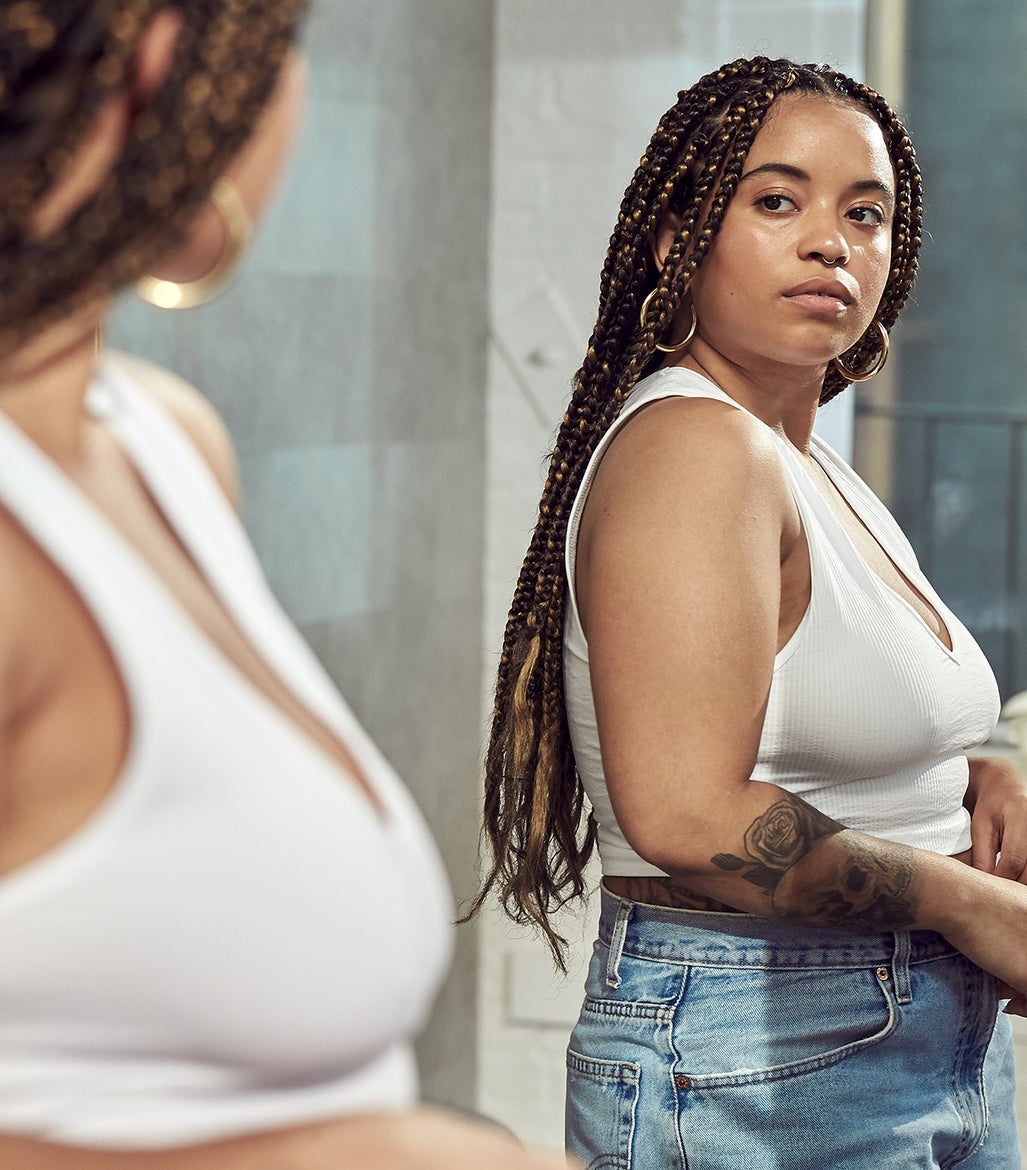Leave behind those impossible goals and the stress that surrounds them.
It’s no secret that society has unreasonable standards for women. From biceps to babies, we’re under pressure to perform, to be perfect, to look perfect. It’s all over Instagram, ground zero for airbrushed, carefully lit, artificially flawless images to compare ourselves to: the perfect layer cake, the perfect table setting, the perfectly clean inbox you leave behind to go on your perfect vacation with your perfect family while maintaining your perfect skin and perfect body.
And yet all of this staged perfection isn’t making us happy — it’s making us anxious, especially about our appearance, and it’s especially affecting women. “The number one domain in which women invest their self-esteem is perceived attractiveness,” says Kristin Neff, Ph.D., an associate professor of psychology at the University of Texas, Austin, and author of Self-Compassion: The Proven Power of Being Kind to Yourself. “It doesn’t matter whether you have a Ph.D. or work in a factory. It’s that pervasive.”
Perfectionism, which is described by psychologists as “excessively high personal standards and overly critical self-evaluation,” is on the rise, and our scrolling habits aren’t helping. Have you noticed that a lot of “inspo” imagery actually makes you feel bad about yourself and how you look? In the same way, perfectionism doesn’t help you achieve your goals; it keeps you from them. “All of that shame, blame, self-denigration, and emotional harshness works directly against your ability to do your best, says Neff. “Instead, you give up, procrastinate, or self-sabotage.” (Maybe that’s why the color-corrected, glossy Instagram aesthetic is on its way out).
To combat perfection anxiety, Neff suggests shifting your focus to a less judgmental and more compassionate place. Next time you’re standing in front of the mirror focusing intently on a blemish or a stretch mark, instead try appreciating what your body can do. Boost and compliment yourself the way you would a friend. If that’s not your thing, try affirmative meditations. In one experiment, Neff recruited women with body image concerns and had them listen to self-compassion meditations for three weeks, with positive results. “They started shifting what they were basing their self-worth on,” she says. “They went from ‘Am I attractive enough?’ to “I’m a human being and therefore I’m intrinsically worthy.’” Not only that, but the positive effects were still there three months later.

Letting go of perfectionism can be hard, says Jessica Rohlfing Pryor, Ph.D., a practicing psychologist and researcher at The Family Institute at Northwestern University: “Many people have a fear that if they let go of striving for perfectionism, or if they allowed me to help them become more self-compassionate, that they’ll somehow slide into mediocrity.” She has her clients experiment with changing their idea of success — what would it be like to just be very good at something, instead of perfect?
Alongside setting more manageable goals, Rohlfing Pryor encourages focusing on the process and enjoying each step and bit of progress along the way. “I ask people to identify three things that they do every day, little micro-actions that they did that count as good enough,” she says. “And I use positivity mantras like ‘I am enough,’ or, ‘My best is enough.’” You can even make everyday habits like shaving or brushing your teeth “mantra moments” to help you remember to say them consistently. She stresses that shedding perfectionism is itself a journey, and that setting micro-goals in this process is helpful. Giving yourself permission to run just a couple of miles instead of your usual four, or to wear the same outfit twice in a week are both moments to celebrate.
The celebration part is key — celebrating imperfection is one of the most powerful acts of self-care you can do. We’ve been conditioned to believe that some of our most distinguishing features are flaws — but when we reframe and challenge that thinking, we open up space to love how our genetics and our experiences uniquely shape the skin we’re in. And isn’t that a bigger achievement?


